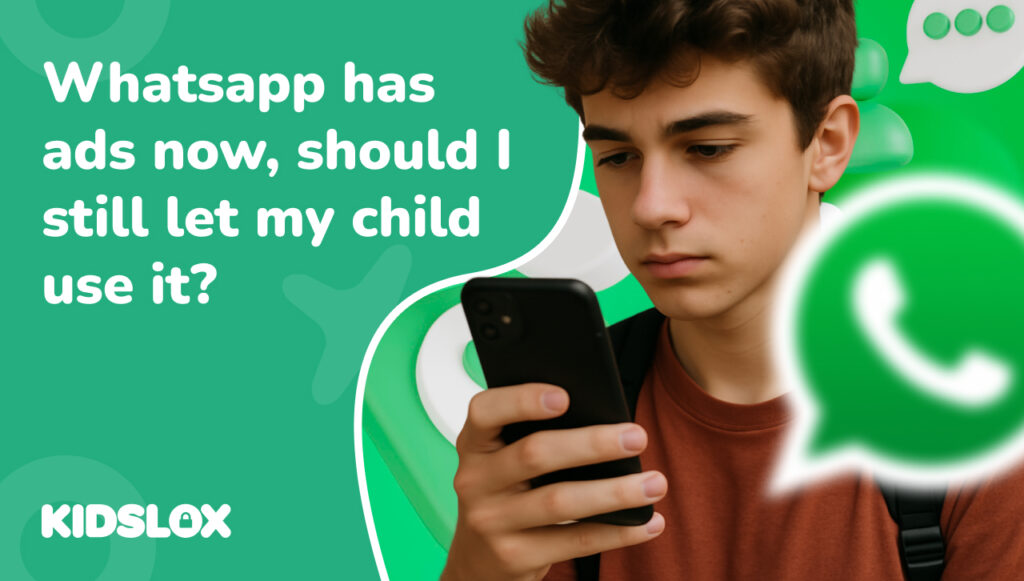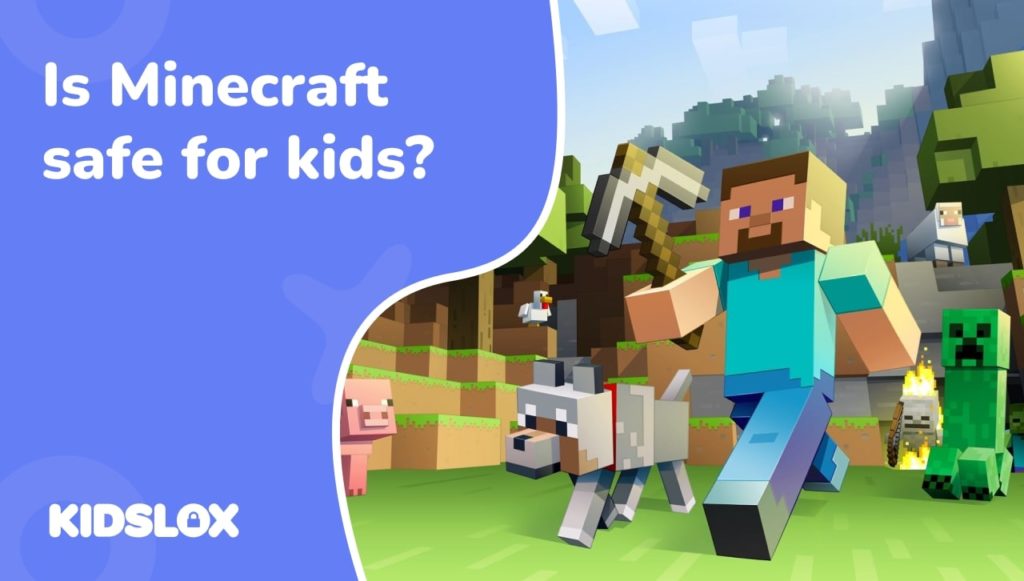Do you remember when the messaging app WhatsApp emerged on the market and promised “No Ads! No Games! No Gimmicks!“?
Well, with the introduction of WhatsApp Ads, that promise has just been broken.
WhatsApp is the world’s most popular messaging app, used by over 2 billion people (including a lot of teenagers). Until June 2025, it was completely ad-free. Now, for the first time ever, WhatsApp ads are appearing in the app.
If you’re like most parents, your kids may use WhatsApp. They may use it for family group chats, or they message their friends over WiFi through the app (no cell plan necessary!)
This new change affects how your kids’ personal data is collected and used, the amount of time they spend on the app, and the type of content they’re exposed to.
And for parents who already feel overwhelmed by keeping up with digital safety, this feels like another moving target.
Knowing about WhatsApp ads is a new chapter in the ongoing story of digital health and wellness. Now the questions grow larger: Is the app still appropriate for your kids? Are they being exposed to advertising they don’t understand? And what should you do about it?
What Is WhatsApp’s New Advertising Model?
While you might primarily use WhatsApp for family group chats or texting relatives abroad, your kids probably use it for much more than basic messaging.
WhatsApp has a feature called “Updates” (think of it as similar to Instagram Stories or Snapchat) where users can share media and messages that disappear after 24 hours.
It’s become one of the main social feeds where kids and teens keep up with one another outside the more public feeds of Facebook or Instagram.
This “Updates” feed is where WhatsApp ads now appear. When your teenager scrolls through their friends’ Updates to see content, they’ll now also see sponsored content from businesses mixed in with posts from people they know.
But these aren’t as obvious as YouTube ads that suddenly interrupt what you’re watching. WhatsApp ads are designed to resemble regular Updates from friends and appear as just another post from someone you follow.
When you dig into the fine print, you’ll find that WhatsApp says it’s using “limited” data to decide which ads to show each user. This data is collected much like any other app, including information like:
- General location (city or country)
- Device language settings
- Which business channels they follow
- How they interact with ads in the app
The company promises that your actual text messages, phone calls, and personal Updates remain private and encrypted.
Why This Matters for Kids
Here’s what many parents don’t realize: kids and teenagers spend a lot of time in the Updates section of WhatsApp.
They’re not just using it to send messages. This side of the app has become one of the primary social channels, and teens are using it just like they would on Instagram or TikTok.
This means WhatsApp ads aren’t hidden in some part of the app that your kids might not usually use. They’re placed directly in the content stream that your children check multiple times per day.
When ads look exactly like content from friends and family, it becomes much harder for kids to recognize that they’re being advertised to. And if your child is still learning how to tell ads apart from genuine content, you might find that they’re clicking on and engaging with ads without even realizing it.
Not knowing what ads they’re seeing and which messages they’re being exposed to should concern every parent. So what’s at risk, and what can you do?
What Data WhatsApp Collects and How It Affects Your Child
Exchanging data for usage has become somewhat normalized in the world of “apps for everything.”
But what you may think is “harmless” data could be collected and utilized for more than you might expect. Throw your kids into the mix, and you’ll quickly see how much risk these apps and ad algorithms pose.
In order to serve up the right ads to users, WhatsApp now tracks your child’s:
- Location information (city, country, and potentially more precise data)
- App usage patterns (how long they spend in different sections, what they click on)
- Social connections (which channels they follow, which Updates they interact with)
- Device information (language settings, device type)
Privacy experts are concerned because this data can be combined with information from other Meta-owned apps (Facebook, Instagram) if your child has accounts on those platforms.
Even if you’ve tried to limit your child’s social media presence, WhatsApp ads create another data collection point.
Practical Steps Parents Can Use to Protect Their Kids
Here’s the good news: You do have options when it comes to using WhatsApp. And you don’t always have to choose between “ban WhatsApp completely” and “let whatever happens happen.”
Review WhatsApp Privacy Settings Together
If your child is old enough to understand what privacy settings are, it can help to walk through the settings with them.
Open WhatsApp with your child and go through each privacy setting. Together, talk about each one and set limits on who can add them to groups and who can see their profile/status.
You can also go through many of the other WhatsApp safety features (some of which you may not know exist!)
Use Parental Control Tools
Sometimes, adding an extra layer of defense can help. Parental control apps like Kidslox can help you monitor your child’s overall app usage and set time limits for social media apps – including WhatsApp. You can also track how much time they’re spending on different digital activities.
While you can’t control the ads within WhatsApp itself, you can manage how much access your child has to the app and establish family rules about use.
Consider Alternatives and Set Boundaries
For some, the idea of WhatsApp serving up ads to users without warning can be a step too far.
If WhatsApp ads and privacy concerns are deal-breakers for your family, you might want to consider other app messaging alternatives. Signal, for example, is a free and secure messaging app that does not have ads or collect user data.
WhatsApp Ads are Here – and They Offer New Chances to Talk About Digital Privacy
The WhatsApp ads situation is really just a symptom of a much larger trend: the increasing commercialization of children’s digital spaces.
Today it’s WhatsApp. Tomorrow it might be another app your kids love.
But rather than trying to chase down every platform change and completely overhaul your digital behavior, use these moments as a chance to focus on building your child’s digital literacy.
These moments are a great time to help them understand that their attention, data, and behavior have value to companies. Explain to them why, and help them see the reasons that being aware of ads – and not just clicking them for extra lives or coins on apps – is important for their digital safety.
While WhatsApp can still be used safely by children with proper supervision and education, it’s important to keep an eye on changes such as ads and be prepared to know how you’ll adjust your digital plan.
The most important thing you can do? Stay curious, ask questions, and maintain open conversations with your kids about their digital experiences.
Sure, the technology will keep changing. But your role as a guide and protector remains constant.
Want to learn more about how to stay ahead of the curve when digital changes occur? Check out our full library of guides and resources for parents and guardians. Learn the latest updates and how to keep your family’s digital health and safety protected!






